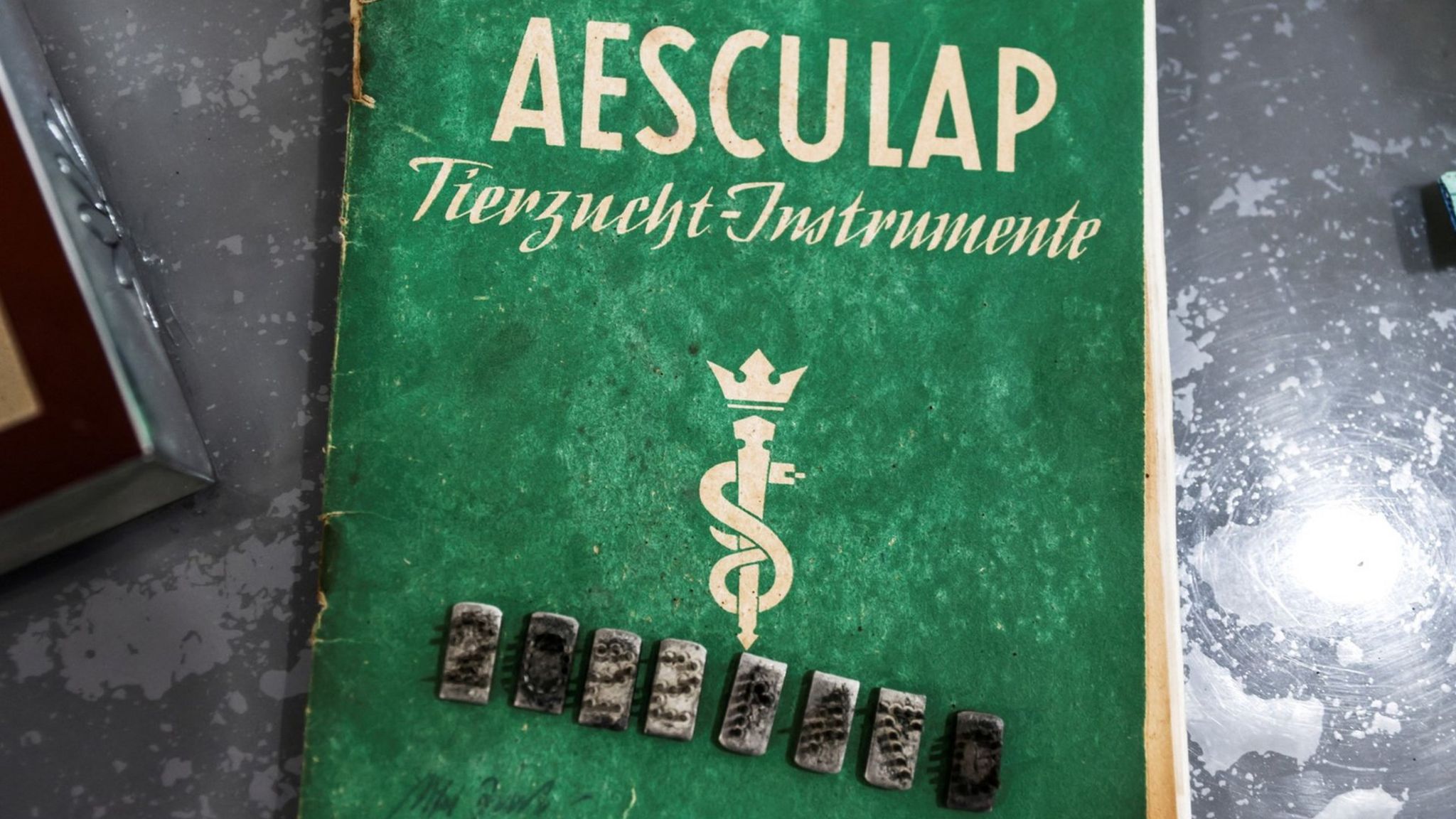Image source, Reuters
A kit purportedly used to tattoo people at the Auschwitz death camp that is being sold by a Jerusalem auctioneer was probably made after World War Two, an Israeli court has been told.
The court suspended the sale of the set of stamps in November at the request of Holocaust survivors and asked the Yad Vashem memorial centre to investigate.
Its report says a booklet accompanying the kit was printed in 1949.
It also says most victims tattooed with such stamps at Auschwitz were not Jews.
Nazi Germany systematically murdered almost one million Jews at the camp in what was then occupied Poland during WWII.
Some 75,000 Polish civilians, 15,000 Soviet prisoners of war, 25,000 Roma and Sinti, as well as Jehovah’s Witnesses, homosexuals and political prisoners were also put to death at Auschwitz.
This video can not be played
To play this video you need to enable JavaScript in your browser.
When he put them up for sale last year, auctioneer Meir Tzolman described the set of 14 stamps, made from steel needles arranged in the shape of numbers, and instruction booklet from the manufacturer Aesculap as “the most shocking Holocaust item”.
He stated that the kit was used to tattoo Jewish inmates at Auschwitz, and that it was one of only three known to exist.
Mr Tzolman said he wanted the stamps to end up in “the right hands”, but Holocaust survivors and Jewish leaders condemned the sale.
The head of Yad Vashem called it “morally unacceptable”, while the Center Organizations of Holocaust Survivors in Israel declared that “such an evil item can’t have an owner”.
The Tel Aviv District Court issued an injunction against the sale following a request by the group and asked Yad Vashem’s experts to try to authenticate the kit before it issued a ruling.
The centre’s report, a copy of which has been seen by the BBC, notes that Aesculap produced such stamps for use by farmers on livestock between 1912 and 1987.
It says the stamps being auctioned appear to have been produced in 1949 because the kit comes with a brochure that was published by the manufacturer that year.
The report also says that such stamps were only used at Auschwitz for a period of several months, between the end of 1941 and the middle of 1942, and that the overwhelming majority of victims tattooed with them were non-Jewish political prisoners or captured troops. Tens or hundreds of Jews were tattooed at the camp using this method during that time, it adds.
According to the report, the only stamps that were probably used to mark Soviet prisoners of war are those held at the Military Medical Museum in St Petersburg, Russia.
The report says that in the absence of clear and definite proof, there is no reason to assume that the kit being sold was used during WWII.
“Although this cannot be determined with absolute certainty, it seems highly likely that the stamps were not used to tattoo Jews,” it concludes.
There was no immediate comment from Mr Tzolman on the report, which was due to be submitted to the court on Thursday.


























